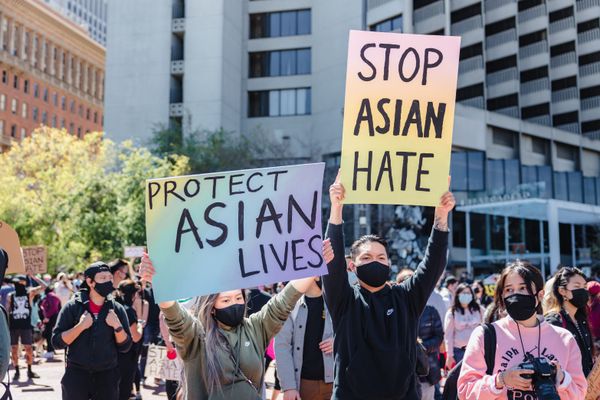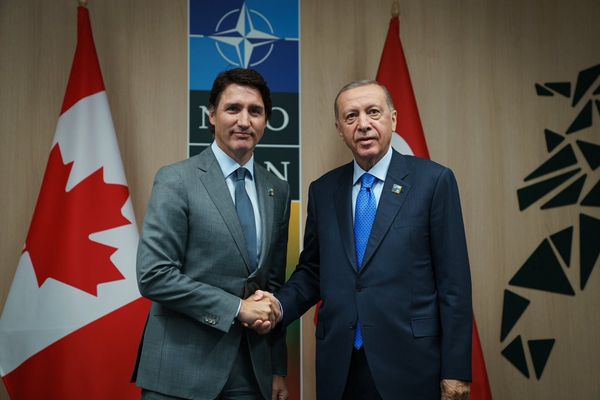Written by Alex Cosh
In the lead up to a key 2019 United Nations vote, Canadian government officials argued that Canada’s pro-Israel voting record is not based on “specific merits” and that maintaining this approach would harm Canada’s reputation on the world stage, according to a new report published this week by the advocacy group Canadians for Justice and Peace in the Middle East (CJPME).
The CJPME report is based on Canadian government correspondence, obtained through access to information requests, in the years leading up to Canada’s decision to join 163 other countries in voting in support of Palestinian self determination at the UN General Assembly in November 2019. This resumed Canada's early-2000s position on that resolution.
The 2019 vote followed an eight-year record — initiated by the Harper government and largely maintained by the Trudeau administration — of voting in alignment with Israel on nearly all UN resolutions on Palestinian human rights. Since the 2019 vote, Canada has resumed voting in alignment with Israel on most resolutions.
The report’s lead author, CJPME vice president Michael Bueckert, told The Maple that the correspondence documented in the report suggests that a significant number of Canadian officials believe the current pro-Israel voting stance adopted by Harper in 2011 has been a failure.
Bueckert added that heavily redacted documents obtained by CJPME suggest that officials had been urging the federal government to change its UN-voting approach since at least 2016, soon after Justin Trudeau became prime minister.
“There's this discussion behind the scenes, [of officials] trying to get the government to change its approach, which they see as damaging, and I imagine that must be frustrating,” said Bueckert.
Global Affairs Canada (GAC) did not respond to a request for comment from The Maple regarding the CJPME report’s findings.
According to the report, a draft memo circulated in October 2019 by Canadian officials in the Israel, West Bank and Gaza Division of GAC said Canada was voting against Israel-related UN motions “without considering the specific merits of each resolution,” but rather based on the belief that Israel was being unfairly targeted by such resolutions.
However, the memo stated that a number of the resolutions that were being debated by the UN “reflect[ed] Canada’s longstanding position on the Middle East Peace and align with Canadian values, including Canada’s support for international law and the rules-based international order.”
CJPME points out that Canada’s approach of systematically voting against nearly all motions regarding Palestinian human rights appears to contradict a years-old statement on GAC’s own website regarding Canadian policy on the Israeli-Palestinian conflict that suggests Canada “assesses each [UN] resolution on its merits and consistency with our principles.”
“It’s pretty embarrassing for the government that its own foreign affairs officials are describing Canada's policy in exactly the opposite terms as to what Canada boasts about on its website,” said Bueckert.
Based in part on Israel’s threat to annex Israeli settlements in the occupied West Bank and then-U.S. president Donald Trump’s highly controversial decision to recognize Jerusalem as Israel’s capital in late 2017, the GAC memo suggested it was an “appropriate moment to reassess Canada’s voting pattern and to potentially move away from a package approach to all of the resolutions.”
According to the CJPME report, the memo suggested Canada could change its votes on a number of key issues if it switched to a merit-based approach to the UN votes.
Officials Warned About Risk to Canada’s International Reputation
The draft GAC memo also warned that Canada would be vulnerable to “criticism from a large number of UN member states” – including other Western countries – if it maintained its current voting approach, noting that Canada “has been the only Western country since 2011 to vote with the United States and Israel on almost all of the Israeli-Palestinian conflict resolutions.”
This record, the memo continued, “has set us apart from like-minded countries,” and would heighten concerns about Canada’s “perceived lack of objectivity on these resolutions.”
The memo suggested to the Minister of Foreign Affairs that Canada could simply vote in favour of Palestinian self-determination and against other motions; adjust its voting pattern by “assessing each resolution on its merits”; or continue its current voting pattern. GAC ultimately recommended the first option, resulting in Canada’s November 2019 vote, on the basis that this would be a “relatively small adjustment” to Canada’s position.
However, after receiving the GAC memo, Foreign Service Officer Kristin Janson requested on behalf of the Permanent Mission of Canada to the United Nations in New York City (PMCUNNY) that the vote for self-determination be accompanied by a broader shift towards a “merit-based approach” the following year. This amendment was not ultimately included in the memo’s final recommendation.
Meanwhile, Senior Policy Advisor Ashley Lefler wrote that GAC's UN Security Council & Organization of Islamic Cooperation Division’s first preference was the second option, but that it would also support the amended version of the first option proposed by PMCUNNY.
According to her LinkedIn profile, Janson has served in her current position since 2007, before the Harper government adopted an aggressively pro-Israel voting position at the UN. Lefler has worked for GAC since September 2015, two months before Trudeau became prime minister.
According to CJPME, Canada’s representatives to the UN did not know how they would be instructed to vote on the Palestinian self-determination resolution “until after 10:00 am on the morning of November 19, the day of the vote.” In fact, the report states, officials had drafted explanations of votes for additional motions on support for Palestinian refugees, in case they were instructed at the last minute to vote for them.
“Trudeau did not reverse Harper's approach, but actually continued to repeat it completely for three years before finally making this single resolution based on the recommendation from this memo,” said Bueckert. He added that the only consideration offered by officials in favour of maintaining Canada’s current approach to UN votes was to avoid destabilizing relations with the U.S. and Israel.
“That one motivation for Canada's policy seems to really be trumping all other considerations,” Bueckert explained.
Podcast: Checking in on The UCP Leadership Race
In the latest episode of The Maple’s North Untapped podcast, we spoke to Maple contributor Jeremy Appel and PressProgress reporter Stephen Magusiak in Calgary, Alberta about the UCP leadership race, whether any candidate can beat frontrunner Danielle Smith, and how the Alberta NDP might respond to a Smith premiership.
We also talked about Smith's political history, and some of the policies she might try to implement if she wins the leadership.
Download the full episode on Apple, Spotify or Google.

Canadian Government No Longer Denies Ukraine Arms Shipments Have Ended Up in Azov Hands

From The Maple
The Department of National Defence won't say for certain that Canada's arms shipments to Ukraine haven't gone towards far-right extremists, including the notorious Azov Regiment, in response to inquiries from The Maple.
This contradicts the government's assertion in March that "the Canadian Armed Forces have never - nor will it ever - provide training or support the Azov Battalion or affiliated entities," adding that it would never support the "glorification of Nazism and all forms of racism, racial discrimination, xenophobia, intolerance and extremism.”
70 percent
Data of the day from Nanos: “Seven in ten Canadians (70%) say that they would have a more negative or a somewhat more negative impression of a politician if they had openly supported the trucker protest in Ottawa. Quebec residents are more likely to have a more negative impression (70%) than those from the prairies (58%).”
Other News
- Hours after announcing the sole remaining suspect in a stabbing rampage that killed 10 people was arrested and taken into custody, Canadian police now say the man is dead, Vice News reports.
- Prime Minister Justin Trudeau told his federal Liberal cabinet Wednesday that he is staying on to fight in the next election, the Toronto Star reports.
- Alberta Health Services will be contracting more privately-owned chartered surgical facilities to relieve surgical wait times at hospitals in the province, Global News reports.
- The squeeze of global inflation has prompted the British Columbia government to spend $600 million to boost a tax credit and increase family benefits for low and moderate-income residents, The Canadian Press reports.
Catch up on our latest content
- NDP Puts Forward 13-Point Plan for Justice in Israel-Palestine.
- Socialist Seeks Breakthrough in Vancouver City Election.
- Annual Payments to For-Profit Clinics in B.C. Increased 57 Percent: Report.







